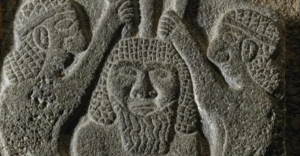In 1853, a great discovery was at the site of ancient Nineveh in modern-day Iraq, near Mosul. A team of British and Assyrian archaeologists uncovered a series of stone tablets, engraved in the Akkadian language, and dated to 1300-1000 BC.
On these tablets is perhaps the oldest recorded narrative known to man. Since 1853, older versions of the story have been found, written perhaps 3,000 years ago in Sumerian — showing that the story had survived the downfall of one empire and the rise of another, and had continued in popularity across cultures.
This is the “Epic of Gilgamesh”, a story which in many ways laid the foundations of the “buddy” story, and may have been the inspiration behind Homer’s “Iliad”, written hundreds of years later in Greece.
The story follows Gilgamesh, a young and handsome Uruk. Gilgamesh was the son of Ninsun, a goddess, and Lugalbanda, a priest-king. Wanting for nothing, he grew up spoiled, arrogant and cruel. He spends his time beating the other men of Uruk in fights and taking many women to bed, including the wives of other men – as royalty and the son of a goddess, he feels he is entitled.
The people of Uruk, terrorized by Gilgamesh, and unable to do anything because of his royal and divine status, cry out to the king of heaven, Anu, to help them with the young king.
Read more HERE
Ask me anything
Explore related questions





